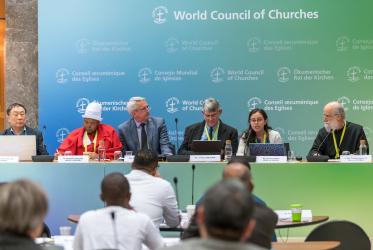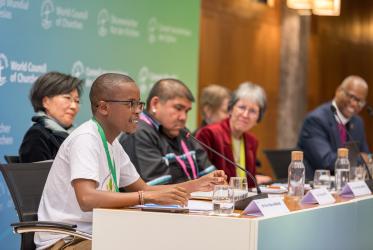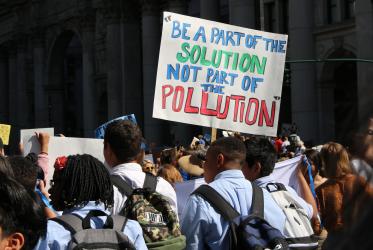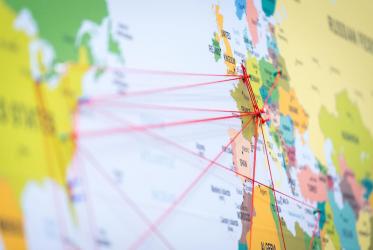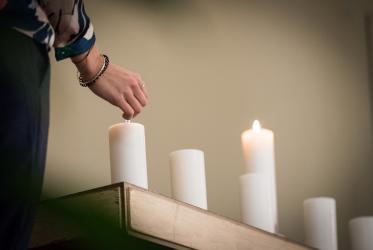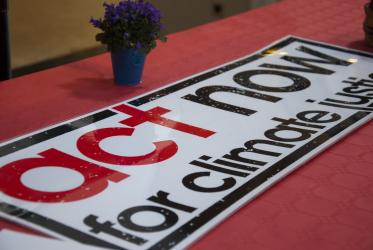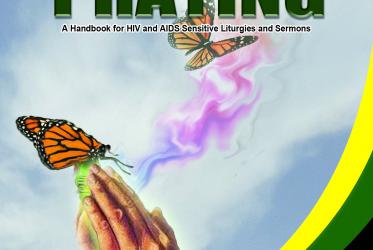Displaying 1 - 20 of 46
How racism and colonialism are exacerbating impacts of climate change
29 September 2021
The essential role of crisis communication
19 March 2020
Eco-School promotes blue communities, green churches
19 November 2019
GEM School: integrating theology and economics
05 September 2017
COP21: WCC reaffirms commitment to address climate change
15 November 2015
“Jamaica Praying” – a manual for HIV and AIDS has been launched
23 February 2015
